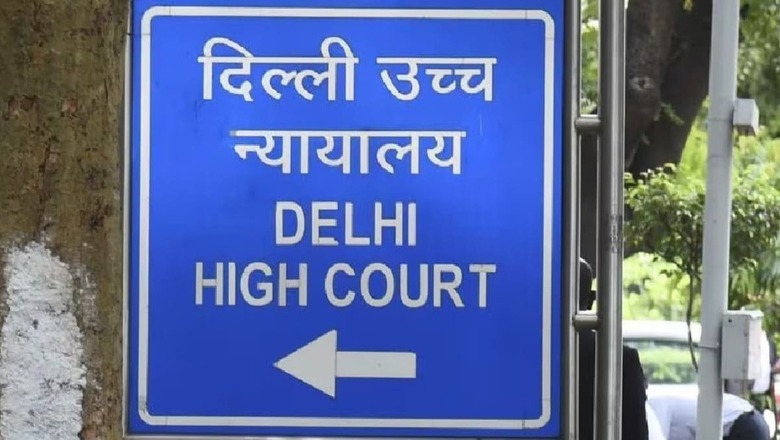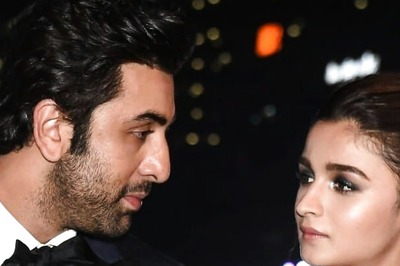
views
The Delhi High Court on Wednesday refused to interfere with a Delhi Police order revoking the permission to an organisation for holding a public meeting of around 10,000 people at Ramlila ground on October 29, saying the posters indicate the event can have communal overtones and result in communal tension in Old Delhi area.
The high court, however, said after the festive season is over, it will be open for the petitioner organisation to approach the authorities seeking fresh permission by giving a list of speakers and an assurance to the authorities that the event will not result in tension in the area. The application, if received, shall be considered by the authorities on its own merit.
“The letter dated October 16 withdrawing the no objection certificate (NOC) granted by Respondent no. 2 (Delhi Police) for conducting the event… does not require any interference,” Justice Subramonium Prasad said. The high court pronounced the order on a petition filed by Mission Save Constitution, which claims to be working for creating awareness among the masses about their constitutional rights.
The petitioner said that after a series of meetings with officials of Delhi Police and taking several clearances, permission was granted for the meeting on October 29. Later, the deputy commissioner of police (DCP) of Central Delhi district “unilaterally, in an arbitrary manner” revoked the permission calling the event as “communal”, the plea claimed.
It said the petitioner seeks to initiate a series of events for strengthening all weaker sections beginning with minority communities followed by other communities like SC, ST, OBC, and in the meetings/ panchayat voice of all the oppressed would be raised. This series is to be started with an event on October 29. The high court, while disposing of the plea, said the entire country celebrates Navratri from October 15 to October 24 and Diwali on November 12. Between Diwali and Navratri, there are several festivals like Karwachauth and Dhanteras and the period from end of Shraadh to Diwali is considered auspicious for the Hindu community, it said.
“Though the event has been strived for the purpose of educating people of their rights but the tenor of posters produced by Delhi Police’s counsel indicates that the event in question can have communal overtones which can result in increase in communal tension in the Old Delhi area which is a sensitive area as people of different religions live here and communal violence in the area is not unknown,” it said. The court said the apprehension raised by the SHO of the area who is aware of the ground reality cannot be said to be mere fanciful.
“Though Article 19 (1)(a) and 19 (1)(b) of the Constitution is freedom to raise one’s voice but at the same time the possibility of creating law and order situation which can lead to loss of lives and properties cannot be ignored. Therefore, the reason given in the letter of October 16 cannot be termed as arbitrary,” it said. The court said it is well settled that the authorities need to be given some leverage while taking the decisions and the scope of judicial review is limited.
The police had earlier told the court that the organisation had misled authorities while applying for permission to hold the meeting at Ramlila Maidan. The police had said while the permission was initially granted, it was later revoked on receiving several complaints from people of the locality that the proposed event appeared to be “communal”.
The counsel for the police said the petitioner sought nod for a meeting to educate people about their constitutional rights, so the permission was granted with a condition that no participant shall make provocative speeches which is prejudicial to maintenance of harmony. However, the authorities later came to know about a pamphlet and there was a nomenclature given to the proposed meeting, that is, mahapanchayat.
The counsel for the petitioner had said the idea for seeking NOC was to make the police aware about how many people are coming and it was disclosed to them. He had said there was nothing offensive or communal about the language used in the poster which can be in breach of any of the conditions and that they were ready to modify the poster and change the date, if the police want so. The petition sought a direction for calling for the October 16 letter issued by the DCP (Central) and set it aside. It also sought a direction to the authorities to permit the organisation to hold the event scheduled for October 29. While cancelling the permission earlier granted for holding the meeting, the letter issued by the DCP said in view of representations from public persons, the matter has been re-assessed and it has surfaced that the theme of the event is different from what was projected by the organiser.
“The course of re-assessment has further disclosed that the language written on the posters available on social media regarding the rally shows that the agenda of the event appears to be communal. There is strong apprehension that holding of such an event during festive season and at such a sensitive place may spread communal hatred and dent the peace and tranquillity of the area,” the letter said. It added that amid “tension in the Arab countries due to ongoing war between Israel and Hamas”, such a meeting may lead to a law and order situation and spoil the atmosphere of old Delhi where mixed populations live together.
The letter said keeping in view the concealment of facts by the organiser about the nature of the meeting or event, the permission is revoked and cancelled with immediate effect in the interest of law and order of the area. The respondents have made “unfounded allegations, and have given unreasonable and irrelevant grounds for cancellation of the permission”, the petition, filed through advocates Jatin Bhatt and Harshit Gahlot, said. It said the organisation, whose national convenor is advocate Mehmood Pracha, works to enlighten and create awareness among the masses, especially the depressed classes, about their rights as enshrined in the Constitution, and for utilising the constitutional and legal provisions for alleviation of the distress and suffering of such classes.


















Comments
0 comment